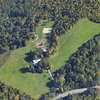New Scotland revises property tax exemptions for seniors
NEW SCOTLAND — A number of New Scotland seniors will see a drop in their property tax bills for the first time in over a decade, following the town board's recent decision to expand the income eligibility criteria.
The board adopted the raised income exemption levels on Dec. 13, following an amendment to the state law governing property tax exemptions for senior citizens, which went into effect this year.
The increase, the first adjustment since 2009, elevates the minimum household income eligibility threshold from $29,000 to $50,000. Households meeting this criteria will benefit from a 50-percent exemption. Concurrently, on a sliding scale, the upper income limit for eligibility has been raised from $37,400 to $58,400, which entitles qualifying households to a modest 5-percent reduction in their assessments.
The exemption is based on household income, not individual income, and there is no cap on property value.
According to the most recent available data from the state’s Office of Real Property Tax Services, from 2022, there were exemptions in New Scotland for 118 “persons aged 65 years or older.”
The total equalized value of the 118 parcels was about $29.5 million, while the corresponding exemption was valued at about $11.7 million.
The town’s total assessed value is about $1.1 billion.
The number and amount of exemptions is likely to go up when tax bills are next sent out.
“So in 2022, we had 20 applicants denied for various reasons,” Supervisor Douglas LaGrange told The Enterprise this week. “And I know some of them were because they were over the [income] threshold. Some of those might qualify, but we won’t know until we get the applications.”
The increase in exemptions did not seem to worry LaGrange, who, using round numbers at the board’s October meeting, said increasing exemptions by about one-fifth “would not have a very large impact overall for the town budget or require spreading out the costs significantly to other taxpayers.”
During that same meeting, Councilwoman Bridgit Burke asked LaGrange and Town Assessor Bradley Canning if “they had a sense of what the change in the exemption limit will cost the town,” according to meeting minutes.
LaGrange said he and Canning had discussed this issue, but determining the exact cost, without having received any applications, would be difficult.
Canning said that increasing the exemption limit would not impact town coffers. For example, he explained, if New Scotland needs to levy $1 million in property taxes, it will still collect the million dollars. “What increasing the exemption limit does is change the tax rate, spreading the $1 million over the other taxpayers who do not qualify for the exemption,” Canning said, according to meeting minutes.
Eligibility criteria
The exemption would start at $50,000 or less with a 50-percent assessment and scale up to $58,999 with a 5-percent deduction:
— $50,000 or less: 50 percent of assessed valuation exempt from taxation;
— More than $50,000 but less than $50,999: 45 percent of assessed valuation exempt from taxation;
— $51,000 or more but less than $51,999: 40 percent of assessed valuation exempt from taxation;
— $52,000 or more but less than $52,999: 35 percent of assessed valuation exempt from taxation;
— $53,000 or more but less than $53,899: 30 percent of assessed valuation exempt from taxation;
— $53,900 or more but less than $54,799: 25 percent of assessed valuation exempt from taxation;
— $54,800 or more but less than $55,699: 20 percent of assessed valuation exempt from taxation;
— $55,700 or more but less than $56,599: 15 percent of assessed valuation exempt from taxation;
— $56,600 or more but less than $57,499: 10 percent of assessed valuation exempt from taxation;
— $57,500 or more but less than $58,400: 5 percent of assessed valuation exempt from taxation.


